Film Name: 革命者 / The Pioneer
Before The Pioneer officially opened in theaters, there had been a lot of positive reviews through sporadic screenings, so much so that I raised my expectations a lot before I saw the film.
After watching this red tribute on the evening of July 1, I couldn’t quite put my finger on what I thought of it: the movie lived up to my expectations, but it wasn’t outstanding either; it was more like an off-the-cuff prose poem that half-documented and half-reconstructed Li Dazhao, the pioneer of China’s communist movement.
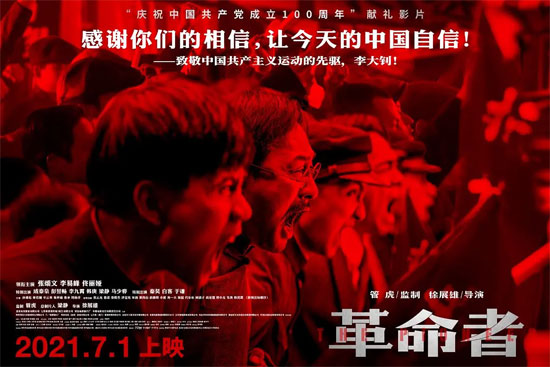
The strength of The Pioneer is that it focuses on Li Dazhao alone, and only on certain moments in his life, with clear and concentrated content, and at the same time, it makes extensive use of film techniques, both real and imaginary, and at the same time, when it is innovative, it also contains a little bit of the “ancient style” of the old melodrama, which makes it hard to not be moved by it;
The downside of The Pioneer is that it uses too many different forms, some of which are so confusingly forced together that they tend to get out of hand while still being fresh, while the overly jumpy, non-linear reminiscence narrative is not friendly enough for some viewers.
Overall, I’m willing to admit that this is one of the rare masterpieces of melodramatic themes in recent years.
[Friendly reminder: there will be spoilers below].
In my opinion, the greatest feature and advantage of The Pioneer is that it goes against the trend when a lot of similar works are sticking to realism and grand narratives.
The movie no longer focuses the camera on the group of the era, but on Li Dazhao alone, and at the same time, it also plays with formalism, which naturally helps to condense the content of the story in such a focused and flexible way.
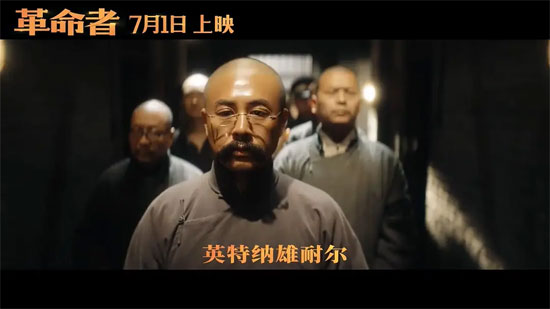
The Pioneer’s “specialized” style is also reflected in the soundtrack – the film’s theme music is firmly locked in the Internationale, and the versions with lyrics alone include a choral version of the interlude, Na Ying’s version of the promotional song, and the children’s version of the Three versions of the ending song, and in several climaxes of the movie, there are different variations and interpretations of the Internationale BGM.
Those who like to listen to the Internationale should enjoy this movie …… Not to mention, the tune’s tonality itself fits the temperament of many of Li Dazhao’s high moments.
That said, there are still many who will feel bad about The Pioneer’s jumpy narrative: the movie takes Li Ta-Chao’s experiences in the 38 hours before his execution by hanging as its sinew, supplemented by a large number of flashbacks and interludes as its flesh and blood, which, apparently, do not appear in chronological order.
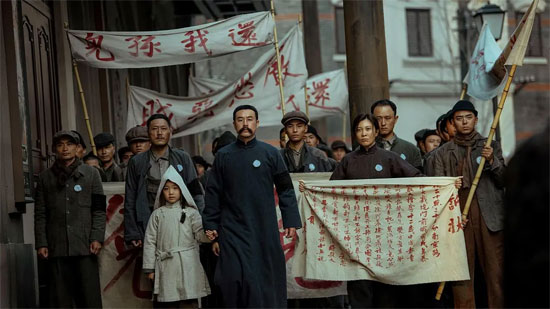
Aside from the confusion that follows the movie’s opening sequence for a while, it really only takes a little more thought to sort out the pattern of the big flashbacks.
On the surface, it is based on the relationship between the people involved outside the prison and what Li Dazhao saw, heard and thought inside the prison to bring out different memories: for example, Zhang Xueliang, the son of warlord Zhang Zuolin, brings out the story of the redress of grievances in Shanghai 10 years ago; Chiang Kai-shek’s telegram brings out the conceptual dispute before the first nationalist-communist cooperation; the name mentioned in the torture brings out the friendship with Chen Duxiu; the shower after shaving his head brings out Mao Zedong, who was first seen in the cool bath, and so on. Mao Zedong after taking a shower after shaving his head, and so on.
There is also a more subtle pattern, though not entirely consistent, but generally speaking, the large portions of the film’s recollections are arranged in the order of Li Dazhao’s words and deeds, from small to large in influence, from low to high in importance, and constantly moving from theory to practice.
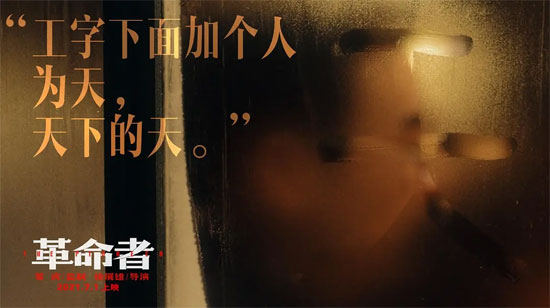
From the question of “How have the people of China changed? to organizing laborers to seek justice for the death of the newspaper boy, Ah Chen; from naming and enlightening the orphan Qingzi, to advising Sun Yat-sen to bring about the Nationalist-Communist Co-operation; from the March 18th tragedy, when he cried out, “We have doctrines, but we need guns,” to the hesitancy of meeting with Chen Duxiu to build a party, and finally, when he climbed to a high altitude with Mao Zedong, when he wished to “plant a red flag all over China”. The wish of “planting red flags” is also a journey towards “romance”. …… These journeys are also a journey towards “romance”.
To mention one detail, Li Ta-Chao was always encouraging the children he met to become literate and broaden their horizons:
He inspired the newsboy Xu Achen to work hard so that he could pay for his sister’s schooling in the future, and later sent her to a girls’ school;
And the fact that Ah Chen dared to resist the bullying of the Russians just shows that he was a young boy who studied culture and embraced progressive ideas;
The name Li Qingtian (“Qingzi” can only be considered an informal term) was given to the nameless orphan in the hope that he would have a heart for the world and make a difference.
The children that Li Ta-Chao taught and led grew older and more capable, but at the same time, he increasingly realized that he was out of his depth.
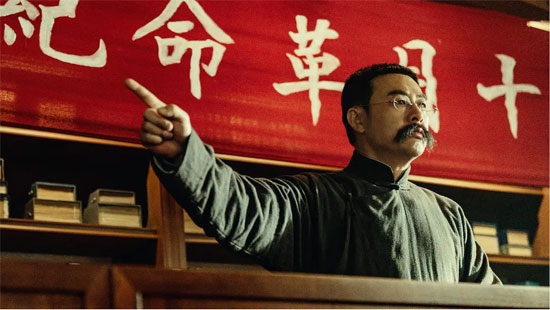
If the trade unions are fighting separately, then unite all the laborers; if the workers are not strong enough, then arm themselves with the new winds sent by the October Revolution; if the May Fourth Movement cannot bring more changes, then work hard to create China’s own communist organization – the film’s narrative jumps around, but the general lineage is still there to be followed.
Of course, The Pioneer would be hard and stodgy if it only portrayed Li as a great man, a warrior, and a man of no earthly substance. In fact, the film always portrays him as an ordinary man: Mr. Shouchang is a pioneer, and he is also one of “us”.
In addition to adding some family memories with his wife, Zhao Sailan, and their children, the film also includes many pieces of life for Li Ta-Chao, such as a theme that struck me as special to the Chinese: eating.
Several flashbacks in The Pioneer contain scenes of eating, and evoke different “mortal” attributes for Mr. Shouchang.
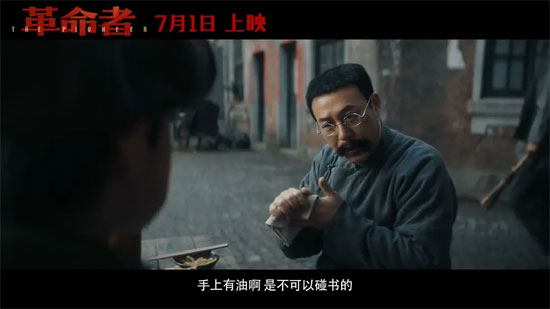
In recalling the morning, that is, Mr. invited him to eat breakfast, a “hands have oil ah, is not allowed to touch the book”, vivid through the rules of the literati more, “poor to talk about”;
New Year’s Eve and the beggars bath, sing together, and stay together, Mr. very real to eat Qingzi left a box of dumplings, previously said on his lips, “and beggars are no different”, but still can not let go of the reserve;
And Chen Duxiu under the Sichuan restaurant and not to mention, and other friends out, and then invited him to eat a meal of Beijing’s small dumplings, although the two of them can think of a piece to go, but has been unable to eat a piece to go;
Also invited Mao Zedong to eat a meal of meat, because the body did not bring enough money, made a “reward a hair” misunderstanding, the good face of the readers and other attributes are also clear.
With the help of a lot of life description, the character of Li Dazhao “from the people, to the people” can be more stable.
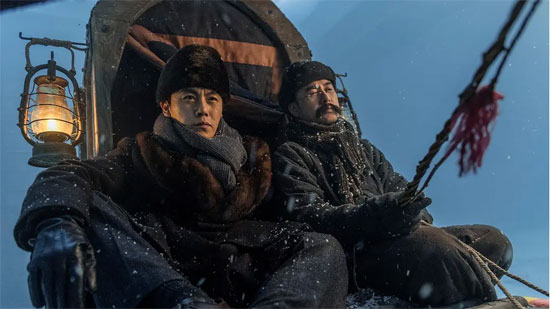
Although the movie is very specialized in the aspect of Li Dazhao, but the specific methods are various, the effect of this aspect is both good and bad.
The good aspect is naturally the fruitfulness of “seeking newness and change”, for example, the speech under the red flag stitched with red cloth, the camera language and romantic atmosphere played more than literati, the light and shadow of the characters in and out of the prison are staggered, the light and darkness of the lighting and editing is very good to set the atmosphere, and in addition, Li Ta-Chao, when he recalled Chen Duxiu, he also hummed a piece of “Friendship Lasts Forever” outside the main melody of the “Internationale”. International Song” outside the main theme of humming a section of the ‘long-lasting friendship’ ……
However, in a film like “The Pioneer”, where the tone is already set, there are a lot of side effects, such as the use of countless flashbacks that are out of control at one point (which I’m willing to interpret and regard as a feature, but in the eyes of some viewers it’s a drawback), and the sense of discrepancy between the various segments of the scene is also strong, and the style is not unified, especially in the later part of the film, where some of the stream-of-consciousness cuts are perhaps the most infectious in terms of their expressiveness. It’s perhaps the most infectious in terms of expression, but to a certain extent it messes up the tone of the whole movie.
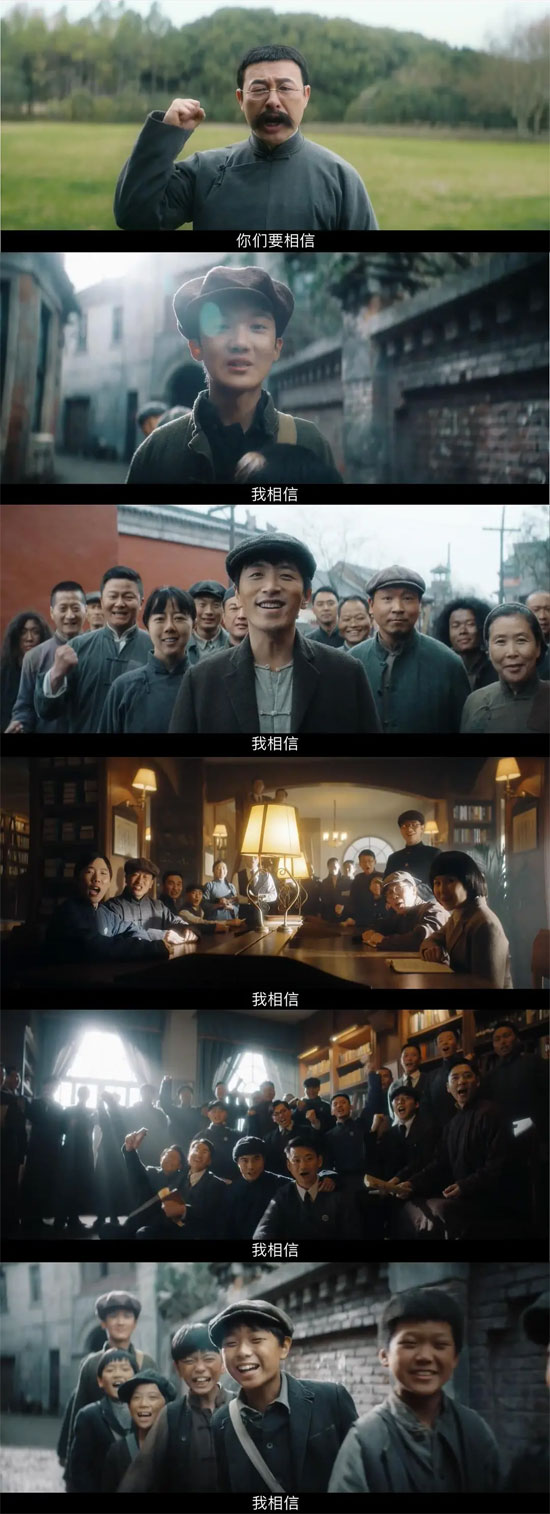
Li Dazhao’s death-defying and firm beliefs are indeed enough for the deafening cry of “We believe, we are united”, and the response of the students, workers and peasants reflects the continuation of the flame of hope, but this cry of passing on the flame also leads The Pioneer into the flatness that it has been trying to avoid in the middle of the movie.
Similarly, there’s also the end-credits sequence about a teenager, Li Dazhao, who secretly drove away from a train alone in 1900, which is so complementary to life’s silhouettes and attempts to be written in a lyrical manner that it’s optional (that’s why it’s put in during the credits, right?…).
It’s clear from these issues that director Tsui Chin-hsiung was indeed a bit “out of his depth”, and that the quality of The Pioneer’s finished product should be the result of the collective efforts of the more involved producers, such as Zhang Song-wen’s methodical and solid performance, which is a very impressive plus… …
In any case, it’s a blessing to have a good melodrama that’s not too shabby.
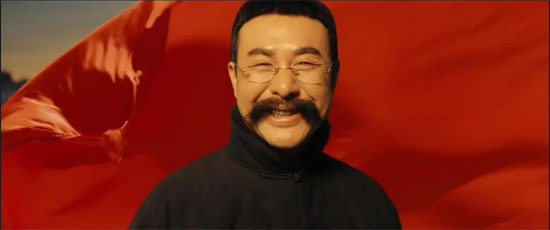
Finally, I pay tribute to Comrade Li Ta-Chao. May you all –
Go forward without looking back, turn your backs on the darkness and turn to the light, advance civilization for the world, and create happiness for mankind.
Please specify:Anime Phone Cases » The Pioneer 2021 Film Review: show filial piety by pledging one’s own blood (idiom); to sacrifice oneself for the glory of others